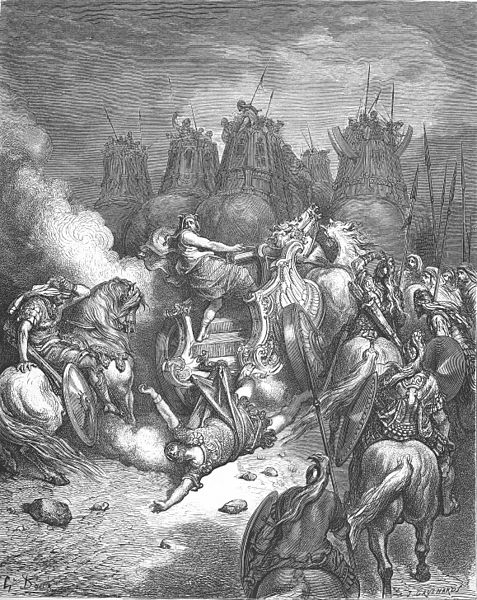The Acra, with the meaning of "stronghold", was a place in Jerusalem thought to have had a fortified compound built by Antiochus Epiphanes, ruler of the Seleucid Empire, following his sack of the city in 168 BCE. The name Acra was also used at a later time for a city quarter probably associated with the by-then destroyed fortress, known in his time to Josephus as both Acra and "the lower city". The fortress played a significant role in the events surrounding the Maccabean Revolt, which resulted in the formation of the Hasmonean Kingdom. The "upper city" was captured by Judas Maccabeus, with the Seleucid garrison taking refuge in the "Acra" below, and the task of destroying this last enemy stronghold inside Jerusalem fell to Simon Maccabeus surnamed Thassi. Our knowledge about the Acra is based almost exclusively on the writings of Josephus, which are of a later date, and on the First and Second Books of Maccabees, which were written not long after the described events.

Givati Parking Lot dig
Antonio Ciseri's Martyrdom of the Maccabees (1863), depicting an episode from Antiochus IV's (seated) persecution of the Jews.
Judas besieging the Acra (Alba Bible, 1430)
Seam along eastern wall of Temple Mount separating Hellenistic (right) from Herodian (left) construction
Antiochus IV Epiphanes was a Greek Hellenistic king who ruled the Seleucid Empire from 175 BC until his death in 164 BC. He was a son of King Antiochus III the Great. Originally named Mithradates, he assumed the name Antiochus after he ascended the throne. Notable events during Antiochus's reign include his near-conquest of Ptolemaic Egypt, his persecution of the Jews of Judea and Samaria, and the rebellion of the Jewish Maccabees.
Bust of Antiochus IV at the Altes Museum in Berlin.
Sidon coinage of Antiochos IV, depicting a victorious galley.
Coin depicting Antiochus IV adorned with a radiate crown, Greek inscription reads ΘΕΟΥ ΕΠΙΦΑΝΟΥΣ ΝΙΚΗΦΟΡΟΥ / ΒΑΣΙΛΕΩΣ ΑΝΤΙΟΧΟΥ (King Antiochus, God manifest, bearer of victory)
Punishment of Antiochus, engraving by Gustave Doré








